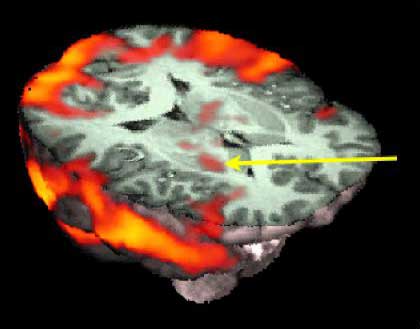Neuromarketing and "the Super Bowl Brain Scans"

This one's from Vaughan at Mind Hacks, who does a superb job of debunking this ridiculous exercise in publicity and hype. His post is reprinted below. No additional comments from The Neurocritic are needed.
The 'complete results' from the Super Bowl brain scans are online, and it does indeed seem as if the exercise has been mostly hype.
Cardinal sins:
1) Not giving the comparison conditions and experimental design. This makes the reported results essentially meaningless.
2) Interpreting brain activity in certain areas to mean a certain response from viewers, even when they actually report something else.
female subjects may give verbally very low 'grades' to ads using actresses in sexy roles, but their mirror neuron areas seem to fire up quite a bit, suggesting some form of identification and empathy.
Mirror neurons tend to fire when anyone else's actions are viewed, there is no evidence that approval or liking of the person doing the actions has any bearing on the response.
3) Assuming activation in the 'mirror system' equals empathy.
4) Assuming activation of the amygdala is a measure of fear.
There is a big jump in amygdala activity when the dinosaur crushes the caveman... The scene looks funny and has been described as funny by lots of people, but your amygdala still perceives it as threatening
The amygdala can be active when someone experiences happiness or joy. Equally, it could have been active because people found the scene funny.
5) Finishing on an advert for the neuromarketing company involved.
- Mirror Meme
Mirror neuron backlash has struck! From a spark lit by Chris at Mixing Memory criticizing "massive, overblown publicity" and some iffy mirror neuron research, debate spread like brushfire (or at least, like email). Among the technical commentary and research...
- Neuromarketing Then And Now
In 2004, the New York Times published If Your Brain Has A Buy Button, What Pushes It?, on neuromarketing. In it they mention an interesting fMRI study about Coke and Pepsi - when subjects didn't know which was which, preference was expressed equally...
- Abnormal Social Cognition
To investigate the neuroscience behind socialising, Andreas Meyer-Lindenberg and colleagues have scanned the brains of people with the genetic disorder Williams-Beuren syndrome and compared them with scans of healthy controls. People with Williams syndrome...
- Mirror Neurons Control The Universe
Chris at Mixing Memory has a piece on the latest paper (Freedberg & Gallese, TICS 2007) to describe mirror neurons as accounting for empathy, art, aesthetics, and all forms of nonverbal communication (and and peace, love, and understanding. What's...
- Neurofeedback In Autism
After complaining bitterly about a bad article in NewScientist.com last week, today I'm happy to post a link to another New Scientist story, which discusses a line of very worthwhile research on "brain training" in autism: Brain training can change...
